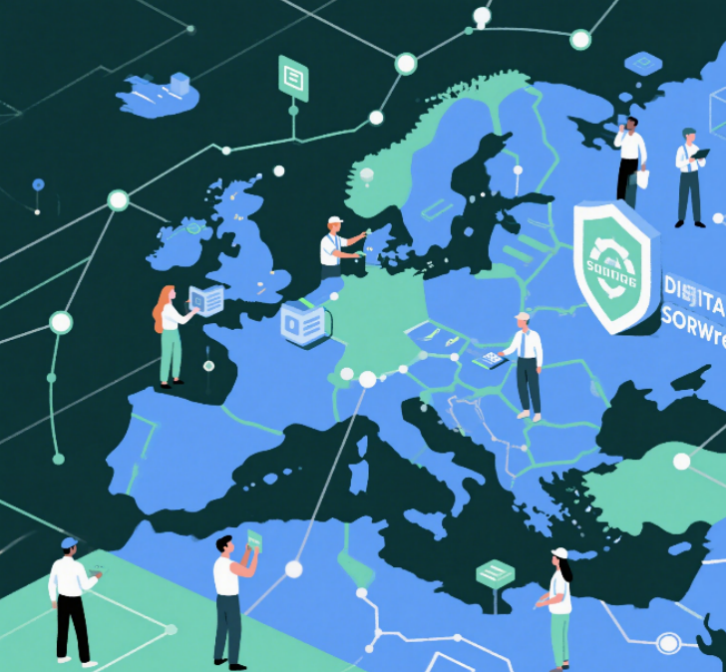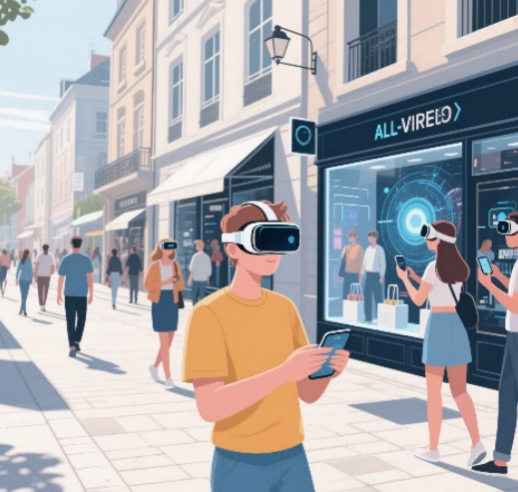The EU’s Metaverse Strategy: Balancing Innovation and Regulation

As the metaverse emerges as a transformative digital frontier, the European Union (EU) has charted a unique course to shape its development—one that prioritizes both technological innovation and societal safeguards. In an era where digital ecosystems increasingly blend physical and virtual realities, the EU's approach seeks to foster industrial metaverses that drive economic growth while upholding principles of data privacy, digital sovereignty, and inclusive governance.
A Vision for Industrial Metaverses
The EU's strategy begins with recognizing the metaverse's potential to revolutionize industries. In its Digital Compass initiative, the bloc outlines ambitions to create "industrial metaverses" that enable seamless integration of virtual models into manufacturing, logistics, and research. For example, German automakers are already using digital twins—virtual replicas of physical systems—in the metaverse to optimize production lines, reducing waste and accelerating innovation. Such applications promise to enhance European competitiveness, particularly in high-tech sectors like advanced manufacturing and green technology.
Central to this vision is the European Metaverse Ecosystem project, which unites enterprises, startups, and research institutions. By funding collaborative R&D, the EU aims to develop open-standard technologies that avoid monopolistic control. This emphasis on interoperability—ensuring different metaverse platforms can communicate—aligns with the bloc's history of promoting digital openness, as seen in its regulations like the Digital Markets Act.

Safeguarding Data Privacy and Digital Sovereignty
While embracing innovation, the EU remains steadfast in protecting citizen rights and digital autonomy. The General Data Protection Regulation (GDPR), already a global benchmark, is being adapted for the metaverse. New guidelines clarify how biometric data collected in virtual environments—such as facial expressions in avatars—should be managed, ensuring individuals retain control over their digital identities.
Digital sovereignty is another cornerstone. The EU fears overreliance on non-European tech giants could compromise its digital autonomy. To address this, the Data Act mandates that data generated in EU-based metaverse applications stays within the bloc unless explicitly authorized for transfer. This not only protects sensitive industrial data but also fosters a "data economy" where European companies can leverage local datasets ethically.
Balancing Act: Regulation Without Stifling Innovation
Critics argue that strict regulations might hinder the metaverse's growth, but the EU believes in "smart regulation." The Artificial Intelligence Act, for instance, classifies metaverse technologies into risk tiers: high-risk uses, like automated social scoring in virtual worlds, face rigorous scrutiny, while low-risk innovations enjoy lighter oversight. This nuanced approach allows startups to experiment while preventing harmful applications.
Public engagement is key to this balance. The EU has launched citizen panels to gather input on metaverse governance, ensuring regulations reflect societal values. For example, young professionals in Paris and Amsterdam have advocated for clearer rules on virtual property rights and algorithmic transparency, insights that are shaping policy drafts.

Global Implications
The EU's strategy serves as a template for balancing digital innovation and regulation worldwide. By prioritizing both economic opportunity and civic protection, it demonstrates that technological progress need not come at the expense of privacy or sovereignty. As the metaverse evolves, the bloc's experience will inform how other regions—from North America to Asia—navigate this new frontier, highlighting the importance of proactive, values-driven governance in shaping the digital future.
In essence, the EU's metaverse strategy is a testament to its commitment to building a digital space that is not just innovative, but also fair, secure, and truly European. As virtual and physical worlds increasingly converge, this balance between ambition and accountability may well define the metaverse's role in shaping the next decade of global technology.
(Writer:Ciki)


